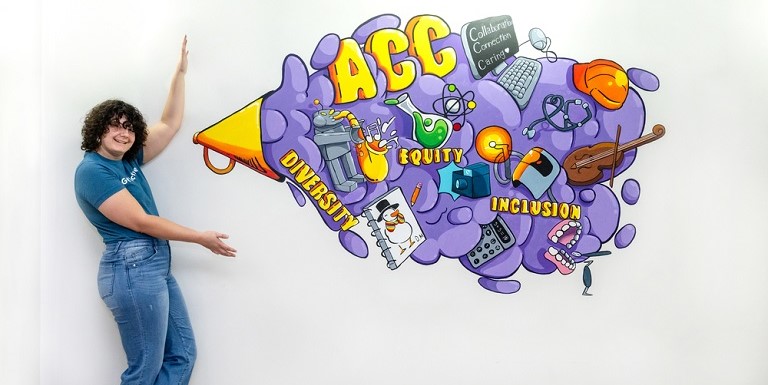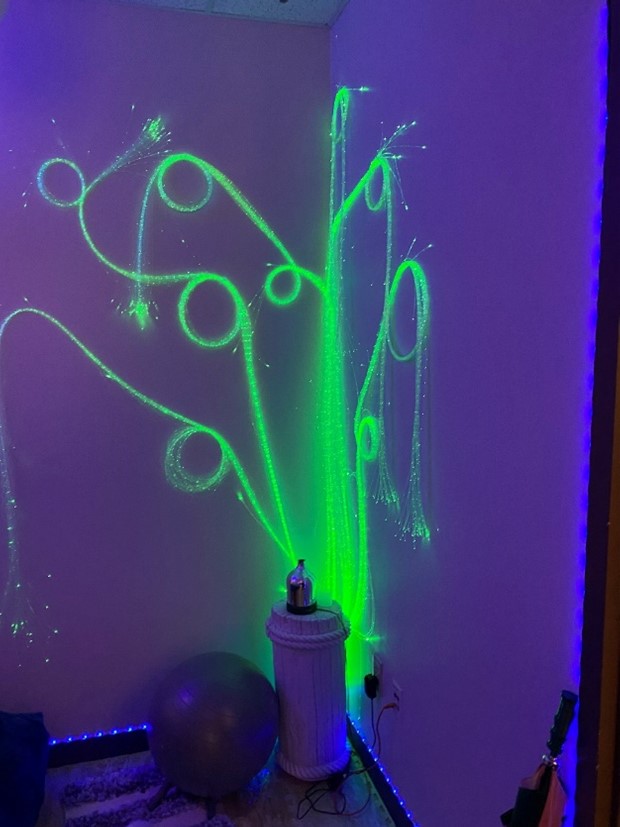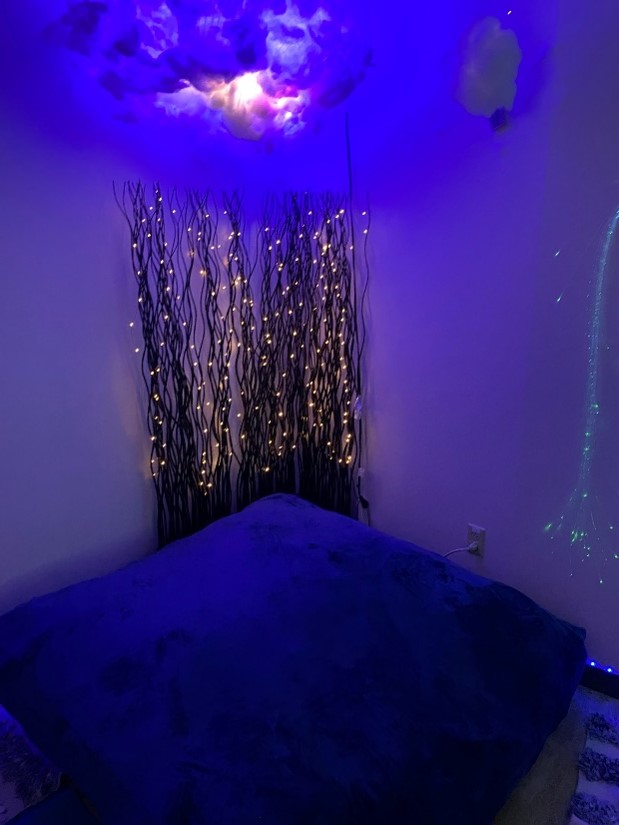Unlocking Potential: Embracing Neurodiversity in Learning Environments

Embracing neurodiversity in educational environments entails challenging traditional perspectives on cognitive differences. The term neurodiversity acknowledges the inherent variation in neurological functioning, emphasizing that diverse cognitive profiles contribute to the richness of the human experience. It encompasses conditions such as autism spectrum disorder, attention-deficit/hyperactivity disorder (ADHD), dyslexia, dyspraxia/developmental coordination disorder, Tourette syndrome, sensory processing disorder, obsessive compulsive disorder, and social pragmatic communication disorder, recognizing them not as deficits, but as naturally occurring variations in the human brain.
A crucial facet of embracing neurodiversity within an academic context involves recognizing and implementing low stimulation learning environments. These environments prioritize minimizing sensory distractions and providing tailored support. By adopting this approach, colleges can tap into the unique strengths of neurodivergent students. Fostering an inclusive atmosphere that celebrates diverse perspectives and learning styles ensures spaces where neurodivergent individuals can thrive.
The benefits of a college actively supporting neurodiversity extend far beyond the individual student. Embracing neurodiversity enriches the educational landscape, promoting innovation, problem-solving, and creativity. A neurodiverse campus reflects a commitment to inclusivity and equal access to education and enhances the overall academic community. As we strive for excellence and progress, integrating neurodiversity into the overall culture of the college aligns with ethical imperatives and underscores the need for holistic, varied perspectives in our pursuit of knowledge and societal advancement.
In the ever-evolving landscape of higher education, there is a growing awareness of the unique strengths and talents that neurodivergent individuals bring to the table. Recognizing this, a forward-thinking team of professionals has emerged with a pioneering focus on neurodiversity, offering a transformative learning environment that caters to the diverse needs of its students.
Programs and Services
At Austin Community College (ACC), we go beyond conventional educational approaches to offer programs and services that support neurodivergent students and foster academic, social, and career-related success. Program components for students include:
- Individualized support and coaching
- Community building
- A psycho-educational focus on executive functioning, behavioral support, and advocacy training
- Articulation and support of academic, social, and career-related goals
- Support for the transition from K-12 to ACC, including orientation and connection to appropriate resources and employees
- Scaffolding to support academic success, such as development of study and time management skills
- Safe and appropriate on-campus employment opportunities
Individualized Support and Coaching
At ACC, coaching enhances academic performance, self-advocacy, and resilience of neurodiverse students. Personalized support embraces neurodiversity, empowering students to navigate social dynamics and unlock their full potential. The coaching relationship becomes a cornerstone, bridging the gap for inclusive collegiate experiences and shaping future leaders and innovators.
ACC’s Student Experience and Outcomes division is designated as a Certified Neurodiverse Workplace by the International Board of Credentialing and Continuing Education Standards. The professional development and achievement of the designation is designed to help the division work effectively with neurodiverse team members and students.
Community Building
Community building is vital for neurodiverse college students, forging a supportive environment where differences are celebrated. A strong community, developed via shared experiences, mitigates isolation, fostering belonging and empowerment. This network enhances social skills and promotes mental well-being and academic support. Embracing diversity, colleges cultivate an inclusive atmosphere, thus enriching the campus culture.
Executive Functioning
Neurodivergent students encounter challenges in executive functioning, including time management and organization. The college's curriculum addresses these issues with tailored approaches that foster skills development through personalized support systems. The approach equips students with effective study habits and organizational strategies, facilitating academic success and imparting valuable life skills beyond the classroom.
Behavioral Support
The college prioritizes an inclusive environment with a strong focus on behavioral support. Trained professionals collaborate with students to create individualized plans and manage challenges related to focus and social interactions. This approach fosters a sense of belonging and acceptance by cultivating an environment where neurodiverse students thrive academically and socially.
Advocacy Training
Beyond academic support, the college prioritizes empowering neurodivergent students through integrated advocacy training. Woven into the culture of the college, this equips students with skills to articulate their needs. Extending beyond campus, it readies them for workforce challenges and fosters self-advocacy for active participation in education and seamless transitions into the professional realm.
Transition From K-12 to Higher Education
The college prioritizes easing the transition for neurodivergent students from K-12 to higher education. Specialized programs bridge these stages by providing tailored orientation, mentorship, and peer support. These initiatives aim to reduce stress and ensure that neurodivergent students enter college with a strong foundation and tools for success.
Safe and Appropriate On-Campus Employment Opportunities
On-campus employment for neurodiverse college students extends beyond financial gains. ACC Guided Reflections on Work (GROW), a career development program, exemplifies educational innovation, bridging academic learning and career goals. These roles offer a structured environment for enhancing skills, confidence, and independence while fostering valuable social interactions for integration among diverse peers.
NeuroBats of ACCess Autism
NeuroBats of ACCess Autism is a student-run organization run by and for individuals with autism spectrum disorder. The group has developed NeuroBats training videos on YouTube that provide a student voice in support for those with neurodivergent backgrounds.
Activities That Engage Learners as Full Partners in the Learning Process
Transformation Coaches support ACC students’ growth and development. Samantha Thomson, a Transformation Coach and GROW Supervisor, leads neurodiverse students in weekly Oculus virtual reality (VR) gameplay that allows them to develop critical thinking, problem-solving, movement, sensory, self-regulation, and anger-management skills.
At ACC, engaging neurodiverse learners is crucial, with VR simulations serving as dynamic tools for skill development in critical thinking and problem-solving. The interactive nature of these activities fosters diverse learning styles and promotes movement and self-regulation. The simulations create a supportive community which reduces students’ fear of mistakes and builds a sense of belonging. Additionally, they aid in anger management by providing a constructive emotional outlet. Embracing such technologies ensures inclusive learning environments, empowering neurodiverse students for academic and personal success and fostering a thriving academic community.
Every Friday, the VR sessions are crafted to center around executive functioning, delving into strategies to enhance organizational skills and cognitive processes. Additionally, special attention is devoted to nurturing emotional intelligence and guiding participants in preventing external influences from hijacking their emotions. These sessions aim to empower individuals with the tools they need to navigate the intricacies of cognitive and emotional realms and foster a holistic approach to personal and interpersonal development.
During the sessions, Thomson offers more detailed feedback to participants, honing in on diverse experiences categorized into green, yellow, and red zones. Delving deeper, the focus extends to shared experiences, exploring triggers, reinforcements, initial emotions, and visualizations of those emotions. Participants are encouraged not to convey emotions, but to present choices, which cultivates a nuanced understanding of their emotional responses. This approach aims to provide comprehensive insight into the intricacies of emotional experiences, equipping participants with a more profound awareness and empowering them to make informed choices in various situations.
Innovative Use of Physical Space Creates an Effective, Supportive Learning Environment
Sensory rooms benefit neurodivergent learners with a controlled environment catering to diverse sensory needs. They promote relaxation, reduce stress, improve focus, enhance self-regulation, and create a more inclusive learning environment. Particularly valuable for students with autism or sensory processing differences, these rooms help them navigate college more comfortably and effectively.


ACC Sensory Room at Northridge Campus
Thomson established a sensory room at ACC’s Northridge Campus for neurodivergent learners. The room is a place where students can come and decompress. In a sensory room, students can engage in various activities to promote relaxation, focus, and emotional regulation.
The sensory room is designed for the following purposes:
- Calming Activities: Students can use sensory tools to create a calming atmosphere, which helps reduce stress and anxiety.
- Sensory Exploration: The room has items that may stimulate different senses, such as textured surfaces, aromatherapy, and soothing sounds, allowing students to explore and engage their senses in a controlled environment.
- Quiet Reflection: The space allows for quiet reflection and mindfulness; students can take a break from the sensory stimuli of the academic environment and refocus their minds.
- Fidget Tools: Access to fidget tools and manipulatives can aid students in maintaining focus during study or relaxation sessions. The sensory room’s 3D printers allow students to design and print their own tools and manipulatives.
- Breaks and Self-Regulation: Students can use the sensory room as a designated space for taking breaks and engaging in activities that promote self-regulation; this helps them manage sensory input more effectively.
By offering a dedicated sensory space, ACC strives to create an inclusive environment that recognizes and accommodates the diverse sensory needs of students and fosters a more supportive and accessible campus community.
ACC’s Transformative Journey
A collective of champions, including students, staff, faculty, and administrators, is propelling the movement to heighten awareness of and advocacy around neurodiversity at ACC. Together, this dynamic coalition is breaking down barriers and forging a path toward a more inclusive, enlightened campus, where neurodiversity is celebrated and valued by all.
To forge a genuinely inclusive culture, ACC must position neurodiversity as more than just a priority for student services; it must be woven into the college's ethos. Beyond a checkbox, neurodiversity must be championed as a pervasive value and overarching goal across the district. Leaders, acting as catalysts, can amplify this call to action. When these leaders ardently champion neurodiversity, their advocacy resonates powerfully. Their commitment manifests in policies tailored to diverse learning styles, crafting a robust support system wherein neurodivergent students flourish academically and socially and an inclusive learning haven for all is fostered.
Moreover, senior leadership support enhances the visibility of neurodiversity efforts and encourages collaboration with external partners and employers. The spirit of cooperation can result in internship opportunities, mentorship programs, and career support tailored to the strengths and abilities of neurodivergent individuals. Collaboration and innovation efforts across the college catalyze an environment in which neurodiverse students can excel academically, develop crucial life skills, and transition seamlessly into the workforce.
Embarking on a transformative journey at ACC, our approach is to provide a holistic education that embraces neurodiversity and recognizes and celebrates the distinctive strengths of each student. Our commitment goes beyond conventional approaches: We actively cultivate an environment in which academic, social, and career aspirations are met and exceeded. From honing executive functioning to providing crucial behavioral support and empowering advocacy training, ACC is crafting an inclusive educational space where every student thrives.
Next Steps
Embarking on our future state goals, ACC aspires to elevate student success by increasing retention and completion rates. For faculty and staff, the focus is on enhancing the capacity to instruct and interact with neurodivergent students. As an institution, we commit to improving student survey outcomes and ensuring a welcoming and supportive environment with minimal procedural and social barriers.
Envisioning a future where every ACC instructor thrives amidst neurodiversity, we plan to develop a Neurodiverse Training Institute for faculty. The goal is for the institute to become an integral part of our Teaching and Learning Excellence Division. As they are onboarded, new instructors will undergo essential training in learning theory, applied methods, Universal Design for Learning, and accessibility principles through curated workshops and webinars which will foster an inclusive teaching environment.
Lead image: Danielle Moak, 3D animation and neurodiverse student at ACC, creates mural on Northridge campus to bring communities together (Click here to see related article.)
Monique Umphrey, D.M., is Provost/Executive Vice Chancellor, Academic and Student Affairs, at Austin Community College in Austin, Texas.
Opinions expressed in Learning Abstracts are those of the author(s) and do not necessarily reflect those of the League for Innovation in the Community College.










